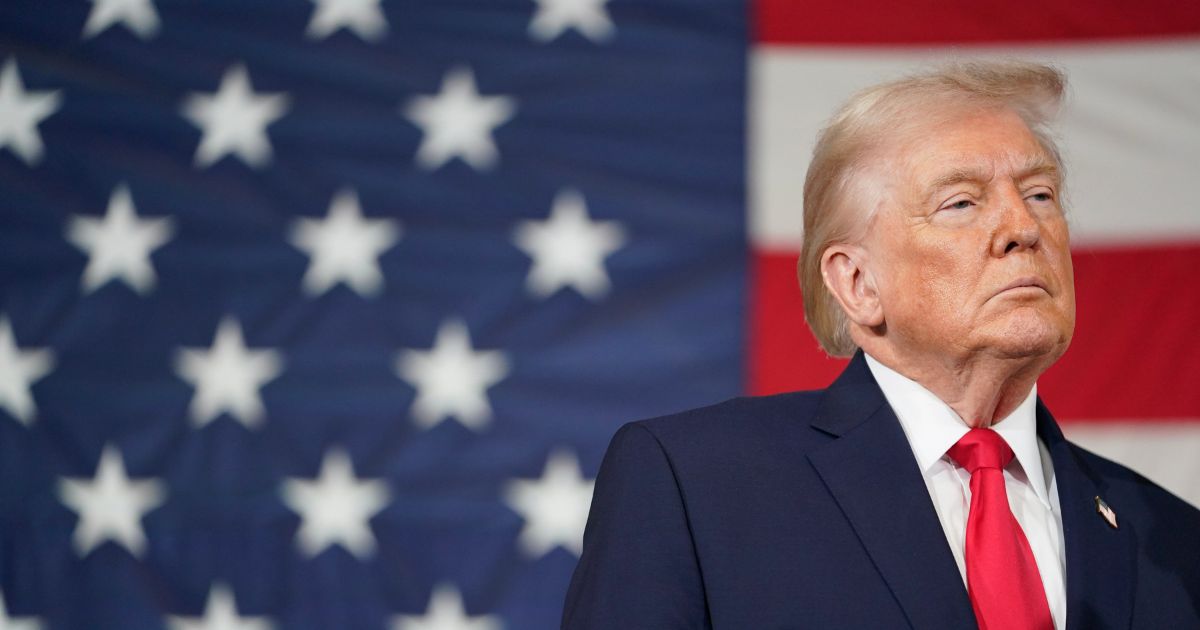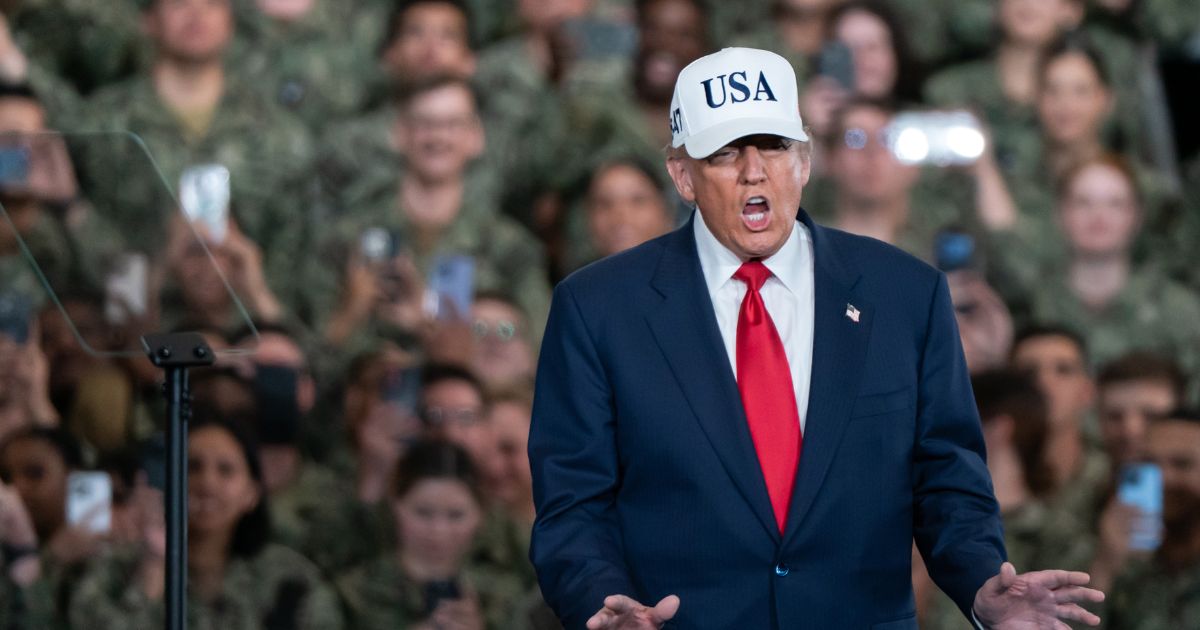Shaky economy tests GOP patience with Trump tariff agenda – Washington Examiner
The article discusses the challenges facing the Republican Party due to an unstable economy and President Donald Trump’s tariff policies. The economy unexpectedly contracted by 0.3% in the first quarter, raising concerns among GOP lawmakers and leading to negative market reactions, particularly concerning Trump’s paused “Liberation Day” tariffs. While the White House claims the economic downturn is temporary and trade negotiations are underway, Republicans are anxious about passing Trump’s economic agenda, which includes a renewal of 2017 tax cuts.
Some Republican senators have expressed doubts about the tariffs, with cracks beginning to show in party support. The approaching deadline in July for lifting a temporary tariff pause coincides with the release of second-quarter GDP data, creating pressure for new economic measures.Business leaders echo concerns over tariffs increasing inflation and potentially leading to a recession. Trump has attempted to deflect blame for the economic situation onto former President Joe Biden, asserting that future economic recovery hinges on reversing current dynamics.
Shaky economy tests GOP patience with Trump tariff agenda
A teetering economy is compounding GOP fears over President Donald Trump’s tariff agenda as lawmakers hope the White House can still reverse course in time to avert a bruising recession.
The economy unexpectedly shrank in the first quarter of this year by 0.3%, adding to weeks of negative headlines surrounding Trump’s global tariff emergency. Stocks cratered on the news of his now-paused “Liberation Day” tariffs, while investors have also navigated volatility in the bond market.
The White House maintains the circumstance is temporary as advisers negotiate a raft of trade agreements over the next several weeks, but the uncertainty has for the time being raised the stakes on passing Trump’s economic agenda in Congress, including a renewal of his 2017 tax cuts.
It has also created an “I-told-you-so” moment for Wall Street executives who’ve been warning of negative economic impacts. The GDP numbers were driven by a spike in imports before the tariffs took effect but are believed to exaggerate the impact of the slowdown.
“I’m not saying that he’s responsible for it. But yeah, he should definitely take that as a warning sign,” Sen. Ron Johnson (R-WI) told the Washington Examiner of the latest GDP figures. “It’s not exactly like we have a robust economy.”
“It does not surprise me,” Sen. Mike Rounds (R-SD) said, adding that the “sooner that the president can make clear a path forward,” then the “better off we’re going to be and the quicker we’ll have a rebound.”
The party has given Trump a wide berth on tariffs, which are largely on pause at a reduced 10% rate for countries until July, but cracks have begun to form in Congress. The latest evidence came Wednesday, when a handful of Republican senators sided with Democrats on a failed measure to revoke the national emergency used by Trump to invoke tariffs.
Senate Majority Leader John Thune (R-SD) has previously expressed reservations about the impact of tariffs on his home state but focused on the long term in defending Trump’s economic agenda to reporters on Wednesday.
“The tariff issue is something that’s — like I said, it’s an open question,” Thune said. “But we’re giving them some space to negotiate and see if they can get some good deals.”
Trump and administration officials insist trade negotiations will bear fruit, but no deals have yet to be announced. Some GOP senators quietly hope the negative economic indicators, such as the stock market and GDP, will push Trump back toward the free trade policies that Republicans have historically embraced.
The July timeline to lift Trump’s tariff pause will come just weeks before second-quarter GDP numbers are released. In that window, Republicans also hope to be finishing a megabill to pass Trump’s agenda, with provisions they hope will rev the economy, including energy and a spate of new tax cuts.
Sen. Thom Tillis (R-NC), facing reelection next year in battleground North Carolina, suggested extending those cuts, coupled with pulling back tariffs, would set the U.S. back on the right economic track.
“I believe if we pass the [Tax Cuts and Jobs Act] in a substantially similar form, and then we settle down the tariffs and get some of the deals, then we get the economy back on track,” Tillis said. “But you can’t look at this today and recognize it for anything other than being unacceptable.”
Meanwhile, executives at some of the country’s largest companies were already sounding the alarm based on their own first-quarter earnings before the national GDP report.
Proctor & Gamble CEO Jon Moeller called tariffs “inherently inflationary,” Home Depot CFO Richard McPhail said they’re “just another cost in the equation,” Delta CEO Ed Bastian labeled them “the wrong approach,” and JPMorgan Chase CEO Jamie Dimon warned tariffs will “likely increase inflation and are causing many to consider a greater probability of a recession.” AT&T and Verizon executives said increased import costs for cellphones will be passed to consumers.
Even Tesla CEO Elon Musk, the Trump confidante and head of the administration’s cost-cutting agency, has dinged the president’s trade policies.
“I’ve been on the record many times saying that I believe lower tariffs are generally a good idea for prosperity, but this decision is fundamentally up to … the president of the United States,” Musk said on a recent earnings call. “I’ll continue to advocate for lower tariffs rather than higher tariffs, but that’s all I can do.”
A recession is defined as two consecutive quarters of contracting GDP growth. Economists often consider other factors as well, such as the unemployment rate.
In response to the lackluster GDP numbers, Trump claimed former President Joe Biden was responsible for the state of the economy and insisted any downtown was unrelated to tariffs. By contrast, Trump in 2024 asserted a booming stock market at the time under Biden was “THE TRUMP STOCK MARKET.”
“This is Biden’s Stock Market, not Trump’s,” Trump posted Wednesday on Truth Social. “I didn’t take over until January 20th. Tariffs will soon start kicking in, and companies are starting to move into the USA in record numbers. Our Country will boom, but we have to get rid of the Biden ‘Overhang.’ This will take a while, has NOTHING TO DO WITH TARIFFS, only that he left us with bad numbers, but when the boom begins, it will be like no other. BE PATIENT!!!”
ECONOMY SHRANK IN FIRST QUARTER, SIGNALING MAJOR WARNING
Trump, during a Cabinet meeting later on Wednesday, went a step further to preemptively blame Biden for any negative second-quarter figures.
“You could even say the next quarter is sort of Biden because it doesn’t just happen on a daily or an hourly basis,” Trump said.
Samantha-Jo Roth contributed to this report.
" Conservative News Daily does not always share or support the views and opinions expressed here; they are just those of the writer."




